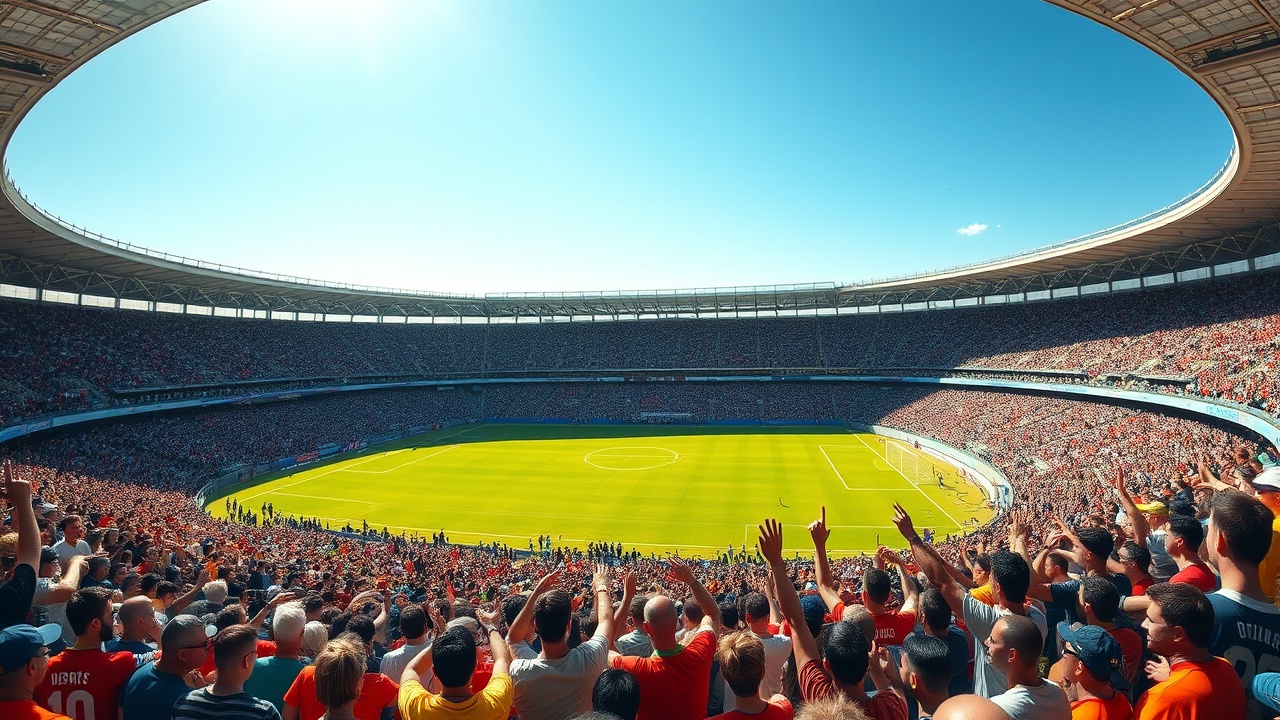Introduction
On a picturesque summer evening, the atmosphere at Park Hall Stadium in Oswestry, England, is charged as fans rally behind local favorites The New Saints (TNS). The crowd erupts as the matchup against KF Shkendija from North Macedonia marks the beginning of the Champions League first qualifying round on July 8. TNS, champions of the Cymru Premier, are all geared up, but the event signifies not just a new chapter for them, but also a peculiar circumstance in the larger realm of club football.
Changing Landscape of Football Seasons
Traditionally, these early matches symbolize the commencement of the football season. Yet, this year feels different; the relentless nature of the sport has left little room for a true off-season. As the players engage in the game in Oswestry, globally, Chelsea is competing against Fluminense in the Club World Cup semi-finals in New Jersey, further highlighting the ongoing football frenzy in the summer months. Chelsea is not just fighting for pride but also for a substantial reward of nearly £100 million in potential earnings from the competition, adding to their already overwhelming tally of 63 matches this season. Interestingly, Chelsea’s manager Enzo Maresca pointed out the vast number of games they’ve played, leading to a journalist noting that Fluminense has even surpassed that count with 70 fixtures across two seasons.
Player Fatigue and Concerns
Meanwhile, Real Madrid finds itself grappling with the exhaustion of another grueling season, marked by their recent semifinal defeat to Paris Saint-Germain, which concluded their 68-game campaign. Concerns about player fatigue have reached a point where the club has approached La Liga with a request to delay their opening match of the 2025-26 season against Osasuna. This anxiety reflects a broader issue in football, with players expressing their frustrations over the endless cycle of tournaments and matches.
“Teams whose season commenced in mid-July 2024 were still battling on July 4, 2025.” – Jules Kounde, Barcelona defender
Fellow player Raphael Varane echoed his sentiments, pointing towards the increased risk of injuries and the lack of consideration for player well-being from those in charge. Such complaints may not resonate with fans who often view players as well-compensated professionals capable of enduring the rigors of the sport. However, the relentless grind of football seasons demonstrates the serious implications for player health that cannot be overlooked.
Calls for Change
As the FIFA president, Gianni Infantino, champions an expanded Club World Cup format, transitioning from seven teams in 10 days to a sprawling tournament involving 32 teams over nearly a month, the urgency for a more player-centric approach becomes clearer. Infantino’s vision for the forthcoming 2026 World Cup is similarly ambitious, introducing 48 teams and creating a hefty fixture list that raises questions about sustainability in elite football.
Notably, players’ workload statistics are staggering; Real Madrid’s Federico Valverde has amassed an incredible 6,674 minutes on the pitch since August 14, 2023, a tally that translates to over 74 matches in less than a year. As the upcoming football season looms, concerns over mental and physical fatigue persist, with the Professional Footballers’ Association (PFA) highlighting how players are likely to struggle distinguishing between seasons amid a calendar jam-packed with competitions.
Maheta Molango, PFA’s chief executive, stressed the gravity of the situation, advocating for a structured off-season to alleviate the burdens that modern football imposes on athletes. FIFPRO has echoed this call, proposing a four-week break to ensure players’ longevity and performance quality in the game.
The New Saints’ Perspective
In stark contrast to the grim discussions of player fatigue and burnout, The New Saints embrace their competitive journey in European football. TNS manager Craig Harrison reflects positively on their preparations, highlighting that the prospect of European matches invigorates their players even after an extended, 11-and-a-half month season. The stark dichotomy between the grassroots experience of TNS and the high-stakes turmoil at elite clubs encapsulates the broader conversation around the future of football and player welfare.




